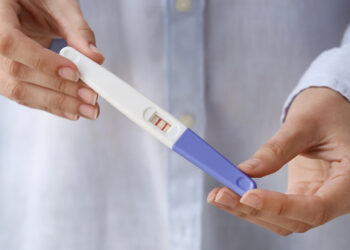TOPLINE:
Not getting enough sleep and going to bed late were associated with a higher risk for central precocious puberty, particularly in girls. Girls with this condition often had serious sleep issues 3.5 years before puberty began.
METHODOLOGY:
- Researchers analyzed data from a prospective cohort of 2238 children (1492 girls aged 6-14 years and 746 boys aged 9-17 years) recruited from four hospitals in Taiwan.
- Sleep parameters such as duration of sleep, later bedtimes, sleep onset time, and overall sleep quality were assessed using the Pittsburgh Sleep Quality Index. A score greater than 5 represented poor sleep quality.
- Insufficient sleep was defined as sleep lasting less than 9 hours for children younger than 12 years and less than 8 hours for adolescents, and late bedtime was defined as going to bed after 9 PM for children younger than 12 years and after 10 PM for adolescents.
- Children were followed up every 3 months.
- Central precocious puberty was diagnosed on the basis of early development of secondary sexual characteristics, advanced bone age, and specific hormonal criteria; children with peripheral precocious puberty or missing data were excluded.
TAKEAWAY:
- Overall, 742 children had central precocious puberty, and 1496 had normal development.
- Girls with central precocious puberty were more likely to report insufficient sleep (adjusted odds ratio [aOR], 1.329; P = .013) and later bedtimes (aOR, 1.576; P = .005) than girls without the condition. No significant link was found between sleep parameters and the risk for central precocious puberty in boys.
- When assessing transitions in sleep duration before and after puberty onset, girls with central precocious puberty slept 1 hour less than their peers without the condition until 3 months prior to puberty onset.
- Girls with central precocious puberty experienced extreme sleep insufficiency 3.5 years before puberty, whereas boys with the condition slept longer.
IN PRACTICE:
“Insufficient sleep and late bedtime may be critical determinants of CPP. Due to their modifiable nature, we recommend that girls maintain sufficient sleep duration and adhere to earlier sleep times, particularly before puberty,” the authors wrote.
SOURCE:
The study was led by Wen-Yu Lin, MD, of the Department of Family Medicine at the Taipei Medical University Hospital in Taipei, Taiwan. It was published online on July 18, 2025, in the Journal of Adolescent Health.
LIMITATIONS:
The recruitment of participants from urban hospitals may have introduced selection bias. Participants were from families with higher incomes and educational levels, which may not represent the general Asian population. The follow-up period for normally developing boys was not long enough to fully understand the relationship between sleep duration and pubertal development.
DISCLOSURES:
This study was supported by grants from Taipei Medical University Hospital and the National Science and Technology Council. The authors reported having no conflicts of interest.
This article was created using several editorial tools, including AI, as part of the process. Human editors reviewed this content before publication.
Source link : https://www.medscape.com/viewarticle/insufficient-sleep-and-late-bedtimes-early-puberty-risk-2025a1000kmx?src=rss
Author :
Publish date : 2025-08-04 08:17:00
Copyright for syndicated content belongs to the linked Source.











